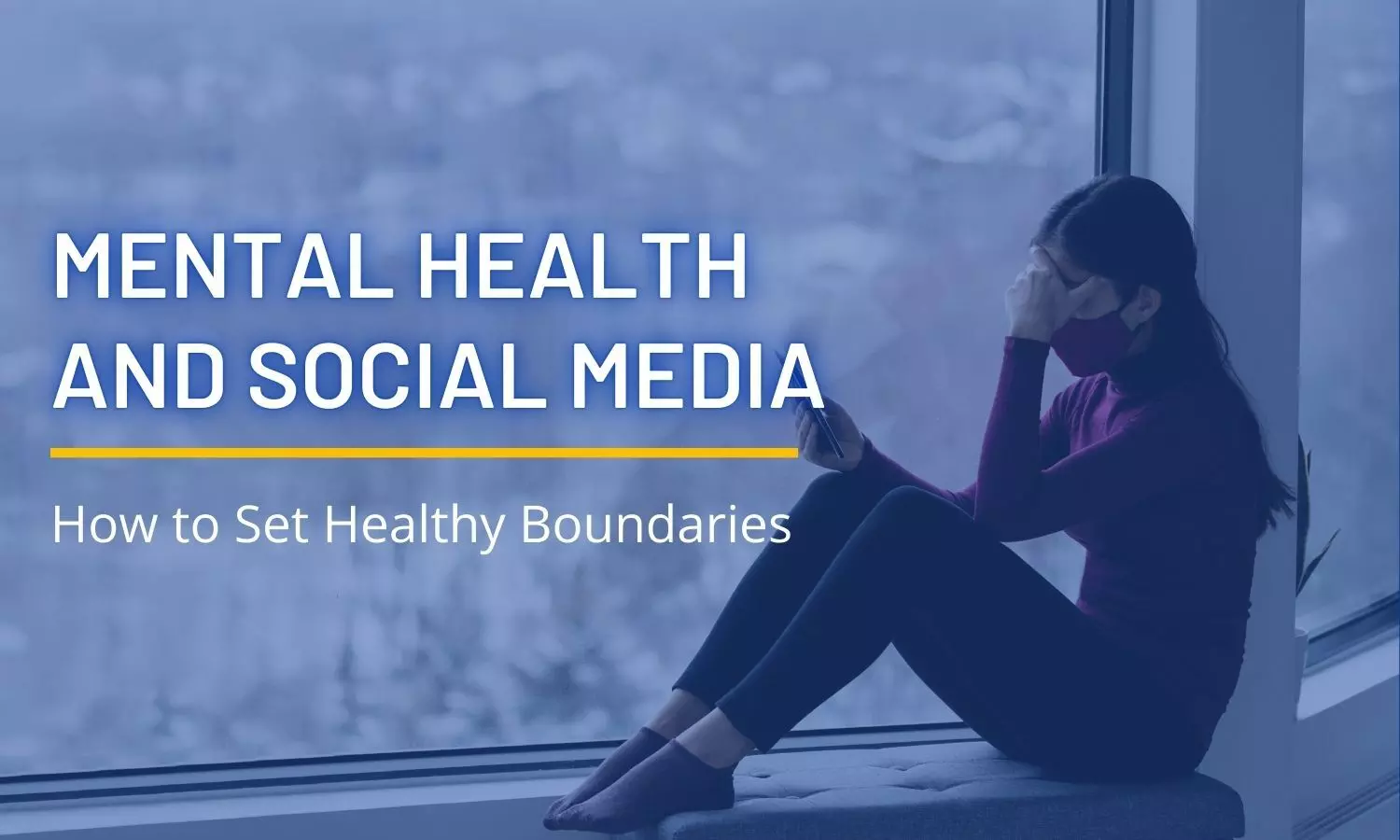Mental Health Matters: How to Set Effective Social Media Boundaries

Mental Health Matters: How to Set Effective Social Media Boundaries
Tips for healthy use, setting boundaries, and practising a digital detox to reduce the impact of social media on mental health.
Social media has transformed our lives to a great extent, starting from the way we connect, share, and communicate, making both information and relationships more accessible across the globe. Though the advent of social media has turned out to be a boon for humankind across various aspects, it also presents certain drawbacks. The information overload caused by social media is not only leading to infobesity but also impacting our mental well-being in a big way.
Caught under the influence of social media, modern-day individuals fail to strike a balance between the online and offline world. This is increasingly affecting mental health, triggering stress, anxiety and mental fatigue.
World Mental Health Day, observed on 10th October, marks as a reminder to differentiate between real and reel; thereby setting healthy boundaries and prioritising one’s mental well-being.
Impact of Social Media on Mental Health
1.Comparison and Insecurity
People usually share their best moments on social media like a glamorous vacation, job promotion, social gathering and wedding pictures. This creates a fake reality leading to a feeling of inadequacy which ultimately leads to envy, insecurity and even depression. Constant comparison to other people’s lives results in low self-esteem and poor mental health.
2.Fear of missing out [FOMO]
FOMO is a term which was introduced a few years back. FOMO or fear of missing out is the anxiety that arises when a person feels that others are having a good or rewarding experience that they are not a part of. This fear of missing out not only causes stress but can also lead to compulsive social media use, further amplifying mental health issues.
3.Addiction and Digital Fatigue
Social media addiction like any other addiction can affect a person’s social as well as personal life. Social media platforms are designed in a way that people get addicted to it. Features like endless scrolling, notifications, and algorithmic recommendations keep users engaged for hours. This constant use can lead to digital fatigue, where the mind becomes overwhelmed by the vast information available.
4.Cyberbullying
Social media is the hub for cyberbullying and online harassment. The anonymity afforded by online platforms sometimes encourages cruel behaviour, which can have devastating emotional and psychological effects on the victims. Cyberbullying has serious consequences like depression, anxiety, and in the worst case even suicidal thoughts. Unfortunately, the rate of cyberbullying has increased a lot in the past few years.
Considering these challenges, it is important to cultivate a healthy relationship with social media. This can be achieved through mindful use and setting effective boundaries.
Importance of Setting Boundaries for Mental Health
Individuals increasingly prioritise their physical health by eating clean and exercising but often overlook their mental health. It is high time that we give importance to our mental well-being and set boundaries around social media use. Healthy social media use involves being mindful of how these platforms affect us and taking steps to limit their impact on our well-being.
Setting boundaries can help in the following ways:
- Improving focus- Setting boundaries can minimize distractions and increase productivity, both of which are essential for mental clarity.
- Preventing exhaustion - By limiting the time spent on social media, users can reduce the likelihood of feeling overwhelmed and tired by constant online interaction.
- Improving real-life connections - By stepping away from the virtual world, individuals can strengthen their real-world relationships, which are vital for emotional well-being.
- Enhancing self-esteem - Limiting exposure to unrealistic portrayals of life can reduce feelings of inadequacy and comparison.
How to Set Effective Social Media Boundaries
1.Tracking Social Media Usage
The first step involves assessing how much time you spend on social media. Start by keeping track of your social media usage: which platforms you use most frequently and the amount of time you dedicate to them. Once you have gathered this information, it will help you devise a course of plan to optimize your social media usage.
2.Set Time Limits
A practical approach to healthy social media usage leads to spending less time on these platforms. Many smartphones have built-in screen time trackers that allow users to monitor their digital consumption. Establishing a cutoff time, such as no social media after 8 PM, can also help create a healthy distance between you and your screens.
3.Schedule a Digital Detox
A digital detox refers to a period when you intentionally step away from social media. Whether it’s for a day, a weekend, or even a week, a digital detox can offer a much-needed break from the constant flood of information. This can be particularly helpful for people who feel anxious or overwhelmed by their social media use. Use this time to reconnect with yourself, engage in offline hobbies, and be present with your loved ones.
4.Turn off Notifications -
One of the most effective ways to reduce social media's grip on your mental health is by managing your notifications. Constant notifications create a sense of urgency and pull your attention away from the present moment. Turn off non-essential notifications, and check social media on your own terms rather than reacting to constant alerts.
5.Be Mindful of What you Browse -
Curating your social media feed is essential for healthy social media usage. The content that you engage with or the pages that you follow should be carefully chosen by you. If certain accounts or types of content make you feel insecure, anxious, or overwhelmed, it’s okay to unfollow or mute them. Instead, follow accounts that promote positivity, growth, and happiness.
By setting effective boundaries, we can enjoy the benefits of social media while protecting our mental health. It is important to know that in a world that’s constantly online, taking time for yourself and your mental health matters more than ever.














